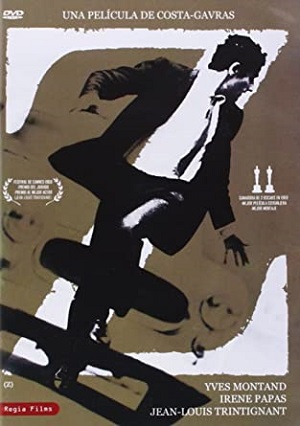Theodorakis et Farantoúri
1974 – To Yelasto pedi
Un des tout premiers concerts de Theodorakis après la dictature – octobre 1974 – a été filmé par la télévision allemande (c’est pourquoi les sous-titres sont en allemand).
Maria Farantoúri y chante To Yelasto Pedi (Le garçon rieur), traduction en grec d’un poème de Brendan Behan, tiré de son recueil The Hostage. Le poème a été mis en musique par Mikis Theodorakis pour le film Z de Costa-Gavras, qui évoque l’assassinat, en 1963, du député Grigóris Lambrákis.
Pour les anglophones :
The Laughing Boy by Brendan Behan
Original Version
T’was on an August morning, all in the dawning hours,
I went to take the warming air, all in the Mouth of Flowers,
And there I saw a maiden, and mournful was her cry,
‘Ah what will mend my broken heart, I’ve lost my Laughing Boy.
So strong, so wild and brave he was, I’ll mourn his loss too sore,
When thinking that I’ll hear the laugh or spinging step no more.
Ah, cure the times and sad the loss my heart to crucify,
That an irish son with a rebel gun shot down my Laughing Boy.
Oh had he died by Pearse’s side or in the GPO,
Killed by an English bullet from the rifle of the foe,
Or forcibly fed with Ashe lay dead in the dungeons of Mountjoy,
I’d have cried with pride for the way he died, my own dear Laughing Boy. My princely love, can ageless love do more than tell to you,
Go raibh maith agat for all you tried to do,
For all you did, and would have done, my enemies to destroy,
I’ll mourn your name and praise your fame, forever, my Laughing Boy.
Glossary :
Mouth of Flowers is a translation of the townland Beal na Blath, where Michael Collins was ambushed and shot.
Padraig Pearse was one of the leader’s of the 1916 Rising.
GPO was one of the buildings the Volunteers occupied in 1916.
Ashe was a Sinn Fein member who died on hunger strike.
Go raibh maith agat is Irish for ‘Thank You’.
Le poème est une lamentation sur la mort de Michael Collins, révolutionnaire irlandais, mort peu avant l’indépendance, dans un guet-apens que lui avaient dressé d’autres révolutionnaires, hostiles au traité qu’il était en train de négocier avec les anglo-irlandais.
La femme qui l’aime déplore que son « garçon rieur » soit mort ainsi
« …Ah, si au moins il était mort aux côtés de Pearse [dans le soulèvement de 1916] ou dans le GPO [immeuble de Dublin où s’étaient abrités les insurgés], tué par une balle d’ennemi anglais ou nourri de force avec Ashe (révolutionnaire mort d’une grève de la faim longtemps avant Bobby Sands).
Go raibh maith agat (merci) dit-elle, pour tout ce que tu as fait. »
Mikis Theodorakis, en composant la musique de Z, a fait un sort particulier au poème sur Michael Collins, dont le destin offrait d’évidentes similitudes avec celui de Grigóris Lambrákis, et la chanson est devenue le leitmotiv du film.
Z : Bande de lancement
Z : Fin du film
À lire :
Evi Gkotzaridis : l’affaire Lambrakis, « Z », et la Grèce méconnue des années ’60
URL de cet article : http://blog.lesgrossesorchadeslesamplesthalameges.fr/index.php/14610-2/
Septembre 2021



0 Comments